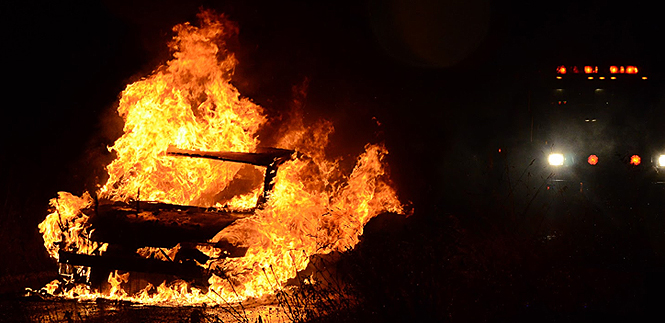Whether you consider yourself a master mechanic or you’re simply fascinated by cars, bikes and caravans and like to tinker with them, you should never forget that what you’re actually working with likely has the potential to be dangerous without the proper consideration of the relevant safety guidelines. Here at SGS Engineering, we know that safety always comes first, whether you’re behind the wheel of your favourite vehicle, or you’re repairing/modifying one, here are some of our best safety tips that you can use to prepare your vehicle for inspection in the safest possible way.
What You Wear Is Important to Get Right
Would you ride a motorbike down the motorway (or elsewhere – for that matter) without a helmet? Of course not, and the same level of precaution is just as necessary when you’re off the bike, as it is or when you’re on it. Therefore, make sure that you have the protective clothing and accessories you need to be safe. Good practice dictates that thick gloves, safety glasses, a face mask, strong boots, and heavy overalls or old clothes (that you’re not afraid to get dirty) are sensible choices. If you’re going to be on your knees a lot with your work, it might also be sensible to wear knee pads to take the stress of your upper body.
Preventing Fires around Your Vehicle
One of the major risks you should consider when you’re about to inspect a vehicle, is the risk of fire. There are a number of flammable substances in the vehicle you’re working with – petrol/diesel and oil being just two of them, so it’s essential to make sure that before an inspection or any work begins, that you ensure that there are fire extinguishers nearby, and also that you've eradicated risk to open flame or sparks.
Batteries Are Dangerous – Take Care
If you’re inspecting a vehicle to see whether the battery is dead and you need to jump it, ensure the environment you are in is properly ventilated, when jumping the vehicle. Also, be very cautious with handling a battery when changing it- tipping or mishandling a battery can cause it to leak dangerous battery acid. Always keep the battery upright. If you accidentally spill battery acid onto yourself, or get it into your eyes, or breathe in any fumes from spilled battery acid, seek emergency medical attention immediately. If you need to check how much your battery is putting out volt wise, simply open your bonnet, and place a multimeter device on it. The red wired needle goes on the red 'positive' (+) terminal, and the black wired needle goes on the black 'negative' (-) terminal. A healthy battery will need at least 11.4v to effectively start your vehicle. If it's below this, or it's dropping below 11.4v after charging, then it's probably time for a new battery.
Raising a Vehicle without Risk
Just before it’s time to get hands-on with the vehicle, you might be required to raise it up to take a look underneath. For this, you’ll need a trolley jack (to lift the vehicle), axle stands to place the vehicle on and a creeper (to rest your back on while you’re lying under the vehicle) – thankfully, you can find extensive selections of both on our site. When you’re ready to raise the vehicle, ensure your trolley jack is on a flat, smooth section of floor, and that it is supporting a section of the vehicle that can take the weight. Also remember to use appropriately-sized wheel chocks to make sure that the vehicle can’t move out of place whilst raised on the other size. It's safe to say that working under a vehicle is never 100% safe, so to make it 100% safe, it's always wise to have a 'dead fall arrest', that will take the weight of the vehicle in the unlikely event of vehicle jack failure, axle stand failure, or the vehicle rolling off anything that's holding it up. Simply use breezeblocks, railway sleepers, hardwood blocks etc underneath structurally strong points under the lifted vehicle. Ultimately, these are just some of the many safety tips that you’ll need to follow when you’re getting ready to prepare your vehicle for an inspection. So heed our advice, be aware of the risks, and hopefully you’ll remain safe.



